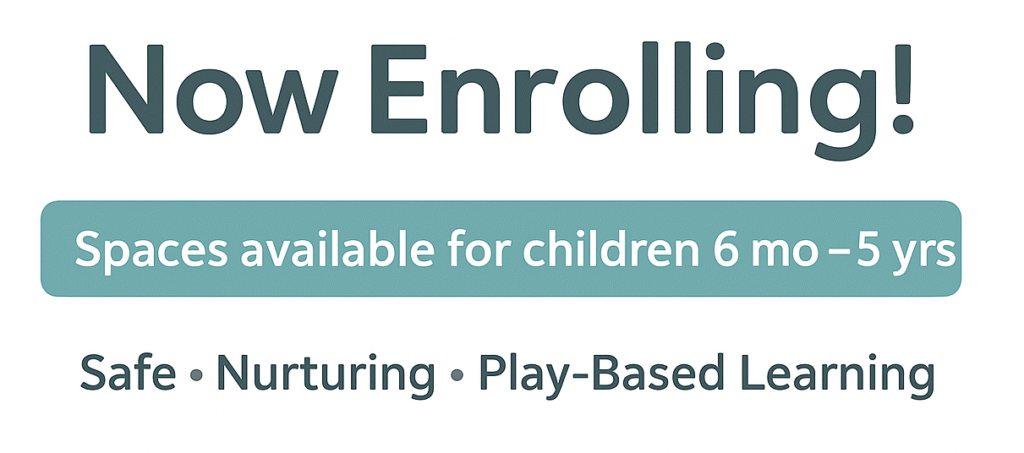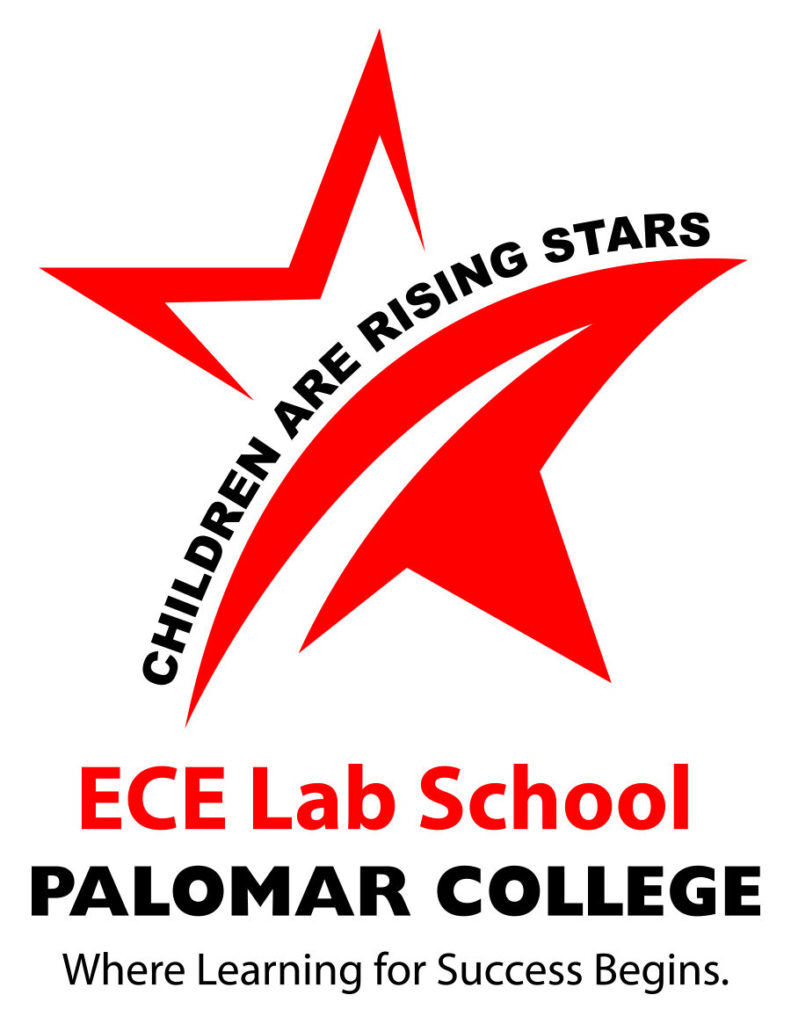Formerly known as the “Child Development Center,” the Early Childhood Education Lab School (ECELS) consists of two sites. The San Marcos Early Childhood Education Lab School is licensed for 12 infants (6-18 months) and 108 children, ages 18 months through 5 years old. The Escondido Early Childhood Education Lab School is licensed for 44 children, ages 2.9-5 years. Services are available to children of Palomar College Students, Faculty, and Staff, and to children of Community Parents. All interested families, please fill out the appropriate Wait List Application form.
Subsidized services are provided to the children of Palomar College Students, and to the children of any family within the community, who qualify/meet the requirements set forth by the State of California, based on need and family size, and income.

Apply today by completing our waitlist application!
We’re excited to welcome your family into our community.
About the ECELS
Our Teaching Staff are trained Child Development Specialists and hold Child Development Permits from the California Department of Education Credentials Office. Each classroom has either a Site Supervisor or a Master Teacher. Both sites serve as Lab schools for the Child Development Department students and students of other studies on campus.
Each teacher develops a balanced, developmentally appropriate, and flexible program to meet the needs of children in his/her classroom. Our program follows the research findings of Jean Piaget and other noted Child Development experts. They state that children of this age need to be active in their learning environment, experiencing the world with all of their senses through “hands-on” concrete experiences in order to assimilate the information.
The curriculum is planned to be appropriate for the age span of the children within the group and is implemented with attention to the different needs, interests, and developmental levels of each child. Opportunities to explore, investigate, manipulate, observe, and discover in the following areas of the curriculum; physical development (includes games and activities that foster physical development) dramatic play, language and literacy (storytelling and dramatizing) science, math, art, music/movement, nutrition, circle time (includes interaction and sharing) social and water-play.
We respect each child’s individuality and uniqueness. We believe that growth takes place in orderly sequences, one stage following another. We believe that the development of the whole child depends on appropriate physical, mental, and social nourishment supplied by the home, school, and community; and that play, both formal and organized, is significant to intellectual growth. We believe it is important for a child to have a pleasant childhood and a good beginning toward a successful life.
In accordance with federal civil rights law and U.S. Department of Agriculture (USDA) civil rights regulations and policies, this institution is prohibited from discriminating on the basis of race, color, national origin, sex (including gender identity and sexual orientation), disability, age, or reprisal or retaliation for prior civil rights activity.
Program information may be made available in languages other than English. Persons with disabilities who require alternative means of communication to obtain program information (e.g., Braille, large print, audiotape, American Sign Language), should contact the responsible state or local agency that administers the program or USDA’s TARGET Center at (202) 720-2600 (voice and TTY) or contact USDA through the Federal Relay Service at (800) 877-8339.
To file a program discrimination complaint, a Complainant should complete a Form AD-3027, USDA Program Discrimination Complaint Form, which can be obtained online, from any USDA office, by calling (866) 632-9992, or by writing a letter addressed to USDA. The letter must contain the complainant’s name, address, telephone number, and a written description of the alleged discriminatory action in sufficient detail to inform the Assistant Secretary for Civil Rights (ASCR) about the nature and date of an alleged civil rights violation. The completed AD-3027 form or letter must be submitted to USDA by:
(1) mail:
U.S. Department of Agriculture
Office of the Assistant Secretary for Civil Rights
1400 Independence Avenue, SW
Washington, D.C. 20250-9410;
(2) fax:
(833) 256-1665 or (202) 690-7442; or
(3) email:
This institution is an equal opportunity provider.
USDA Nondiscrimination Statement (Spanish Translation)
De acuerdo con la ley federal de derechos civiles y las normas y políticas de derechos civiles del Departamento de Agricultura de los Estados Unidos (USDA), esta entidad está prohibida de discriminar por motivos de raza, color, origen nacional, sexo (incluyendo identidad de género y orientación sexual), discapacidad, edad, o represalia o retorsión por actividades previas de derechos civiles.
La información sobre el programa puede estar disponible en otros idiomas que no sean el inglés. Las personas con discapacidades que requieren medios alternos de comunicación para obtener la información del programa (por ejemplo, Braille, letra grande, cinta de audio, lenguaje de señas americano (ASL), etc.) deben comunicarse con la agencia local o estatal responsable de administrar el programa o con el Centro TARGET del USDA al (202) 720-2600 (voz y TTY) o comuníquese con el USDA a través del Servicio Federal de Retransmisión al (800) 877-8339.
Para presentar una queja por discriminación en el programa, el reclamante debe llenar un formulario AD-3027, formulario de queja por discriminación en el programa del USDA, el cual puede obtenerse en línea, de cualquier oficina de USDA, llamando al (866) 632-9992, o escribiendo una carta dirigida a USDA. La carta debe contener el nombre del demandante, la dirección, el número de teléfono y una descripción escrita de la acción discriminatoria alegada con suficiente detalle para informar al Subsecretario de Derechos Civiles (ASCR) sobre la naturaleza y fecha de una presunta violación de derechos civiles. El formulation AD-3027 completado o la carta debe presentarse a USDA por:
(1) correo:
U.S. Department of Agriculture
Office of the Assistant Secretary for Civil Rights
1400 Independence Avenue, SW
Washington, D.C. 20250-9410;
(2) fax:
(833) 256-1665 or (202) 690-7442; o
(3) correo electrónico:
Esta institución es un proveedor de igualdad de oportunidades
The Early Childhood Education Lab School is operated on a non-discriminatory basis, giving equal treatment and access to services, without regard to race, creed, color, sex, religion, national origin or ancestry.
The School policy states, “Program services and activities for enrolled families shall refrain from religious instruction, worship or practices”.
In compliance with the Americans with Disabilities Act, the Palomar Community College District Early Childhood Education Lab School welcomes the enrollment of children with disabilities and will provide reasonable accommodation whenever possible to aid access to and participation in services programs, facilities, and activities.
Early Childhood Education Lab School
San Marcos Campus
1140 West Mission Road
San Marcos, CA 92069
(760) 744-1150 Ext. 2575
Special thanks to Marie Monforte at Marie Monforte Photography for use of several of her photos on our website.


